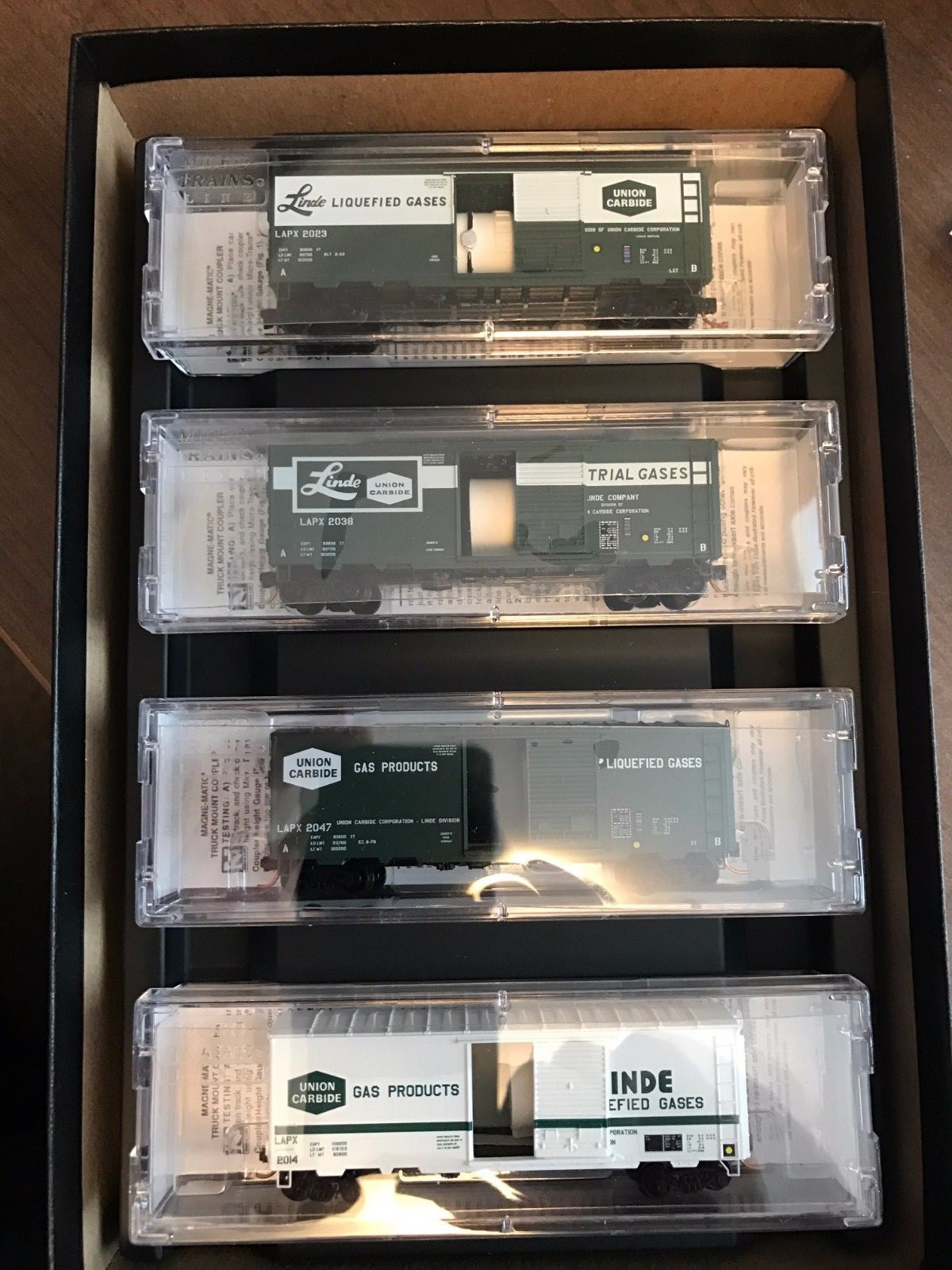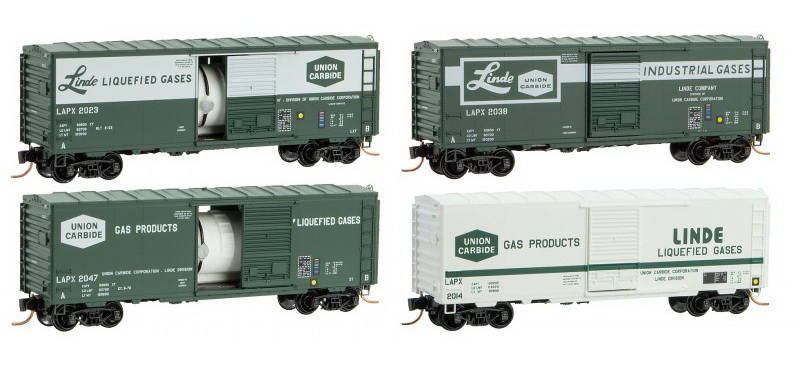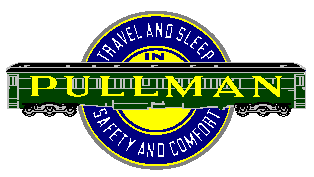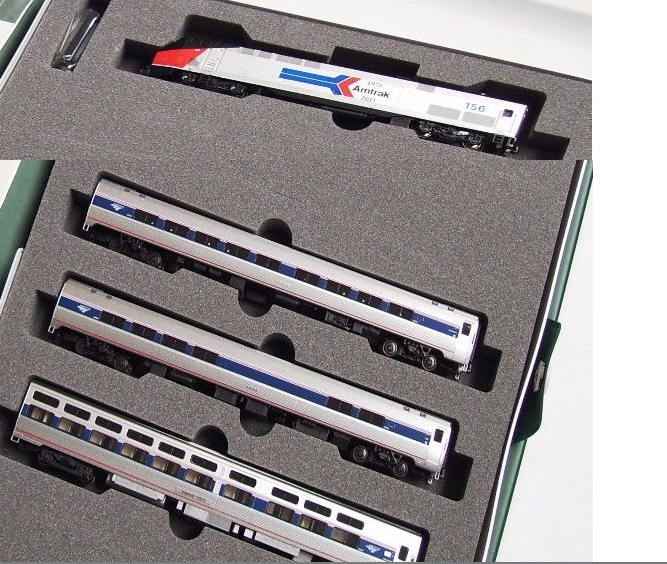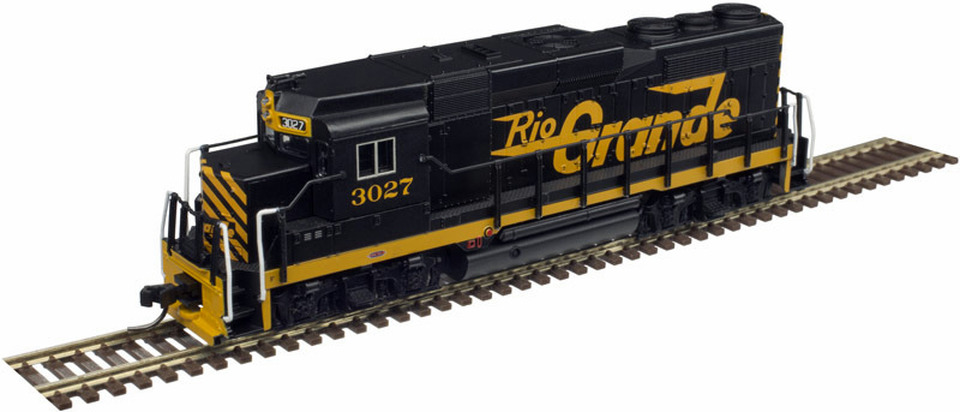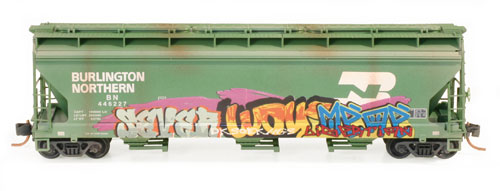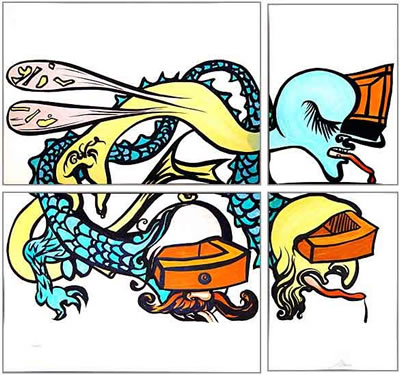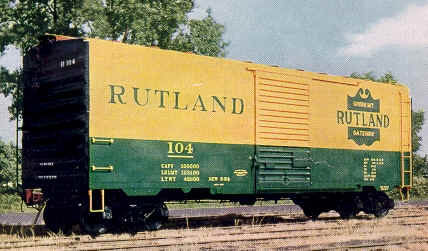Specific Item Information: Road Numbers: 2023, 2038, 2047, 2014
Model Information: Many times since Micro-Trains/Kadee first started producing cars in 1972, they have sold 'multipacks' of cars in shrink-wrapped bundles. These releases have bundles several different items with the same theme together in a single shrink-wrapped packaged. However, in April of 2007, due to demand for groups of cars with the same paint scheme yet with different road numbers, the "Runner Pack" was born.
Runner pack number one got a special presentation box instead of simple shrink wrap and contained four different Pennsy boxcars with identical paint schemes yet different road numbers. These releases were intended for people who like to "run" their cars yet like each car to have a different road number. The 4-car runner packs have been very successful and were joined later by 8-car packs as well as 3-packs of larger, more expensive cars. Over 100 different box sets in this series have been produced by MTL as of 2017.
Runner pack number one got a special presentation box instead of simple shrink wrap and contained four different Pennsy boxcars with identical paint schemes yet different road numbers. These releases were intended for people who like to "run" their cars yet like each car to have a different road number. The 4-car runner packs have been very successful and were joined later by 8-car packs as well as 3-packs of larger, more expensive cars. Over 100 different box sets in this series have been produced by MTL as of 2017.
Prototype History: The 40' Boxcar is widely known as one of the most popular freight cars used by railroads as they transitioned from steam to diesel. In particular the Pullman Standard or PS-1 design was one of the most popular and was widely used by North American railroads. These boxcars were built beginning in 1947 and share the same basic design, with certain elements such as door size, door style or roof type varying among the different railroads and production years. When production of these cars ceased in 1963, over 100,000 had been produced.
So just what is a PS-1? Well the simple answer is it is any boxcar built by Pullman Standard from 1947 on. The design changed over the years – sometimes subtly, sometimes for customer request, and sometimes in a larger way. In general, most PS-1’s built from 1947 to 1961 share the same dimensions and basic construction techniques. These cars all had a length of 40′, a height of 10’5″ or 10’6″, welded sides and ends and roof of Pullman’s own design. The greatest variation was in the size and style of doors used. Pullman Standard also offered 50′ and later 60′ boxcars – also with the PS-1 designation.
So just what is a PS-1? Well the simple answer is it is any boxcar built by Pullman Standard from 1947 on. The design changed over the years – sometimes subtly, sometimes for customer request, and sometimes in a larger way. In general, most PS-1’s built from 1947 to 1961 share the same dimensions and basic construction techniques. These cars all had a length of 40′, a height of 10’5″ or 10’6″, welded sides and ends and roof of Pullman’s own design. The greatest variation was in the size and style of doors used. Pullman Standard also offered 50′ and later 60′ boxcars – also with the PS-1 designation.
Road Name History: 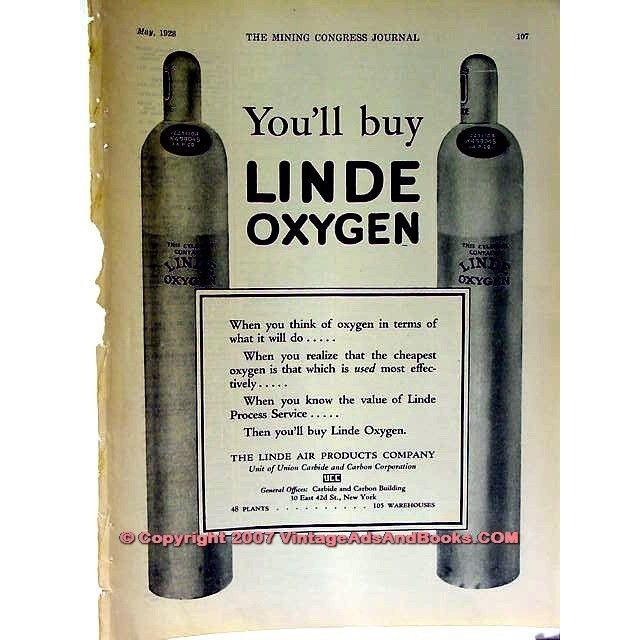 The Linde Group, a German chemical company, founded Linde Air Products in 1907 as a US subsidiary. In 1917, during the First World War, the company was expropriated by the United States government and then acquired by Union Carbide, which operated it as a subsidiary. The Tonawanda, NY facility was instrumental in the development of the atomic bomb as the uranium used in the early bombs was processed there.
The Linde Group, a German chemical company, founded Linde Air Products in 1907 as a US subsidiary. In 1917, during the First World War, the company was expropriated by the United States government and then acquired by Union Carbide, which operated it as a subsidiary. The Tonawanda, NY facility was instrumental in the development of the atomic bomb as the uranium used in the early bombs was processed there.
The Linde Air Company performed uranium and nickel processing for the Manhattan Engineer District (MED) and the Atomic Energy Commission (AEC) at the Ceramics Plant in Tonawanda. African and Canadian ores were milled to black oxides at the plant. Documents indicate that the facility was placed on standby as of March 1, 1950. Linde's contractual agreements with the AEC continued through 1953 for various activities relating to closing out work at the Tonawanda location. Linde was a part of Carbide and Carbon Chemical Corporation (C&CCC), which then became Union Carbide.

The Linde Air Company performed uranium and nickel processing for the Manhattan Engineer District (MED) and the Atomic Energy Commission (AEC) at the Ceramics Plant in Tonawanda. African and Canadian ores were milled to black oxides at the plant. Documents indicate that the facility was placed on standby as of March 1, 1950. Linde's contractual agreements with the AEC continued through 1953 for various activities relating to closing out work at the Tonawanda location. Linde was a part of Carbide and Carbon Chemical Corporation (C&CCC), which then became Union Carbide.
Brand/Importer Information: Micro-Trains is the brand name used by both Kadee Quality Products and Micro-Trains Line. For a history of the relationship between the brand and the two companies, please consult our Micro-Trains Collector's Guide.
Manufacturer Information:  Micro-Trains Line split off from Kadee Quality Products in 1990. Kadee Quality Products originally got involved in N-Scale by producing a scaled-down version of their successful HO Magne-Matic knuckle coupler system. This coupler was superior to the ubiquitous 'Rapido' style coupler due to two primary factors: superior realistic appearance and the ability to automatically uncouple when stopped over a magnet embedded in a section of track. The success of these couplers in N-Scale quickly translated to the production of trucks, wheels and in 1972 a release of ready-to-run box cars.
Micro-Trains Line split off from Kadee Quality Products in 1990. Kadee Quality Products originally got involved in N-Scale by producing a scaled-down version of their successful HO Magne-Matic knuckle coupler system. This coupler was superior to the ubiquitous 'Rapido' style coupler due to two primary factors: superior realistic appearance and the ability to automatically uncouple when stopped over a magnet embedded in a section of track. The success of these couplers in N-Scale quickly translated to the production of trucks, wheels and in 1972 a release of ready-to-run box cars.
Micro-Trains Line Co. split off from Kadee in 1990 to form a completely independent company. For this reason, products from this company can appear with labels from both enterprises. Due to the nature of production idiosyncrasies and various random factors, the rolling stock from Micro-Trains can have all sorts of interesting variations in both their packaging as well as the products themselves. When acquiring an MTL product it is very important to understand these important production variations that can greatly enhance (or decrease) the value of your purchase.
Please consult our Micro-Trains Collector's Guide

Micro-Trains Line Co. split off from Kadee in 1990 to form a completely independent company. For this reason, products from this company can appear with labels from both enterprises. Due to the nature of production idiosyncrasies and various random factors, the rolling stock from Micro-Trains can have all sorts of interesting variations in both their packaging as well as the products themselves. When acquiring an MTL product it is very important to understand these important production variations that can greatly enhance (or decrease) the value of your purchase.
Please consult our Micro-Trains Collector's Guide
Item created by: gdm on 2016-08-30 19:49:06. Last edited by Lethe on 2020-05-07 00:00:00
If you see errors or missing data in this entry, please feel free to log in and edit it. Anyone with a Gmail account can log in instantly.
If you see errors or missing data in this entry, please feel free to log in and edit it. Anyone with a Gmail account can log in instantly.


